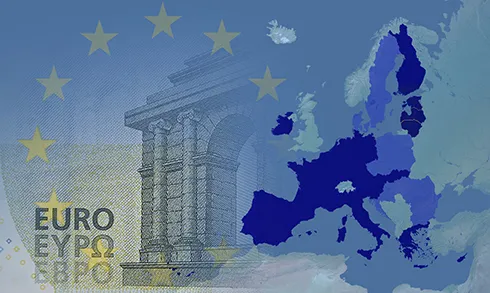|
Getting your Trinity Audio player ready...
|
The European Stability Mechanism could implement a blockchain system in future, leading to easier administration and a more effective response to intrastate financial difficulties, according to the organization’s head.
The body, which was set up in the aftermath of the 2008 European banking crisis, has loaned €100 billion out of a maximum of €500 billion allocation, with the majority of its funds loaned to European states in financial difficulties including Greece and Cyprus.
The organization has responsibility for ensuring financial stability across Eurozone member countries, and was founded as recently as 2012. However, with the emerging potential of the blockchain now being considered by authorities worldwide, the European Stability Mechanism looks like the next organization to voice its support.
The body’s secretary general, Kalin Anev Janse, said that the technology could be used to create a public debt issuance platform, allowing for the resale of debt to third parties through the system.
In supporting the potential of blockchain for realizing this type of functionality, Janse said that the technology is of interest to the ESM as it looks towards more stable systems for the future.
“This point is particularly interesting for the ESM because a more integrated market would by its nature also be more stable. And as our name indicates, ensuring the financial stability of the euro area is our core mission. One could even think of using new technologies like blockchain to set up the new issuance platform.”
This support for blockchain technology is at odds with views expressed by ESMA, the body responsible for overseeing securities within the Eurozone. Having previously declined to adopt new legislative proposals for the blockchain, ESMA would need to change their position before a blockchain system could be implemented across ESM infrastructure.
While the ESM refused to commit to an immediate adoption of the technology, the views expressed by such a high ranking official indicate the organization could be preparing to more thoroughly embrace the blockchain.
It comes at the same time as a number of central banks and state regulators, in the Eurozone and worldwide, turn their focus to the potential of the blockchain.

 07-13-2025
07-13-2025 





